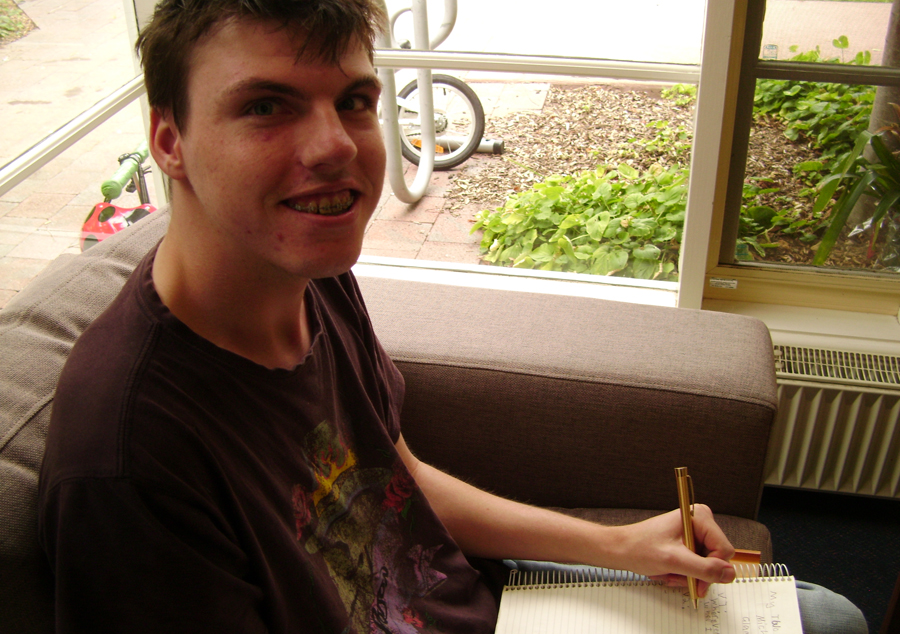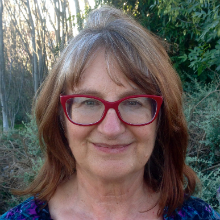Caring for the poet

Despite knockbacks and put-downs for his eccentricity, he graduated from high school as a poet. His English teacher, writer Barry Dickins, saw magic in Dylan’s imaginings.
With Barry’s encouragement, Dylan is developing a follow-on to the book of poems he published in 2012.
Friendship is hard to come by for people on the autism spectrum. Dylan found a way – playing for laughs at the local cricket club. He wrote a funny poem about that.
Dylan’s sensory disturbances and uncontrolled epilepsy have progressed into mental illness. Beset by hostilities, real and imagined, his refuge has been his poetry.
Dylan’s mum Jenny
His mother, Jenny has no refuge and little respite. Dylan needs her continued oversight particularly with the unpredictability of his seizures, which can sometimes be severe.
Apart from being his personal carer, she is his taxi driver, his case manager and his most staunch advocate.
She has to be resilient as she seeks supports for her son, only to be told again and again that either that there is nothing available or that they will have to wait. She had to give up her job. Her health is suffering. She is exhausted, physically and emotionally. As a family, she and Dylan are at imminent risk of breakdown, a criterion for priority access to disability supports. That’s not enough. Many are worse off, so Dylan must wait.
The NDIS offers hope for Dylan and Jenny
Living in Melbourne, Dylan and Jenny have to hang on until 2016 when the National Disability Insurance Scheme (NDIS) will be extended across Victoria. While they are waiting, they can plan for when that day comes.
It is likely that support under the NDIS will be available for Dylan as a person with a permanent and significant disability and a severe and persistent mental illness, living in limited circumstances.
Under the NDIS, an independent planner would partner with the family to work out a plan and budget. The best part of the work will need to be done by Dylan with Jenny’s help in identifying the supports he needs to be more independent of her in living the life that he wants for himself at home, in work and society.
For his aspirations for everyday life and his future, the National Disability Insurance Agency (NDIA) would authorize a plan that meets their criteria for “reasonable and necessary supports” to enable a person’s goals. Dylan’s goal of independence might be met by support workers taking up some of the domestic roles his mum fills for him. There could be funding for mentors – people like Barry Dickins – to engage Dylan and help him access writing communities and performance spaces.
NDIS support that might indirectly benefit Jenny and improve her quality of life would include; personal care to support Dylan at home and supports to assist his social interaction without his having to depend on her.
Once these were things about which Dylan and Jenny could only dream. Now they are things for which they can plan. From 2016, under the NDIS they have a good chance of becoming real.


Join the conversation